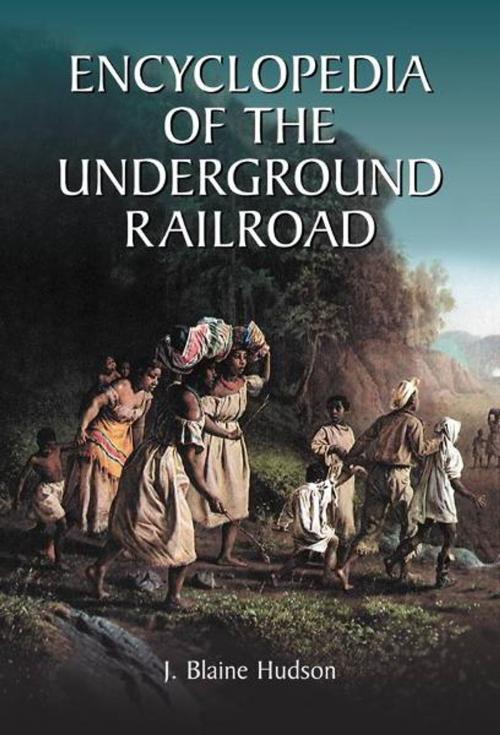Encyclopedia of the Underground Railroad
Nonfiction, Reference & Language, Reference, Encyclopedias, Social & Cultural Studies, Social Science, Cultural Studies, African-American Studies, History, Americas, United States, Civil War Period (1850-1877)| Author: | J. Blaine Hudson | ISBN: | 9781476602301 |
| Publisher: | McFarland & Company, Inc., Publishers | Publication: | January 9, 2015 |
| Imprint: | Language: | English |
| Author: | J. Blaine Hudson |
| ISBN: | 9781476602301 |
| Publisher: | McFarland & Company, Inc., Publishers |
| Publication: | January 9, 2015 |
| Imprint: | |
| Language: | English |
Fugitive slaves were reported in the American colonies as early as the 1640s, and escapes escalated with the growth of slavery over the next 200 years. As the number of fugitives rose, the Southern states pressed for harsher legislation to prevent escapes. The Fugitive Slave Act of 1850 criminalized any assistance, active or passive, to a runaway slave—yet it only encouraged the behavior it sought to prevent. Friends of the fugitive, whose previous assistance to runaways had been somewhat haphazard, increased their efforts at organization. By the onset of the Civil War in 1861, the Underground Railroad included members, defined stops, set escape routes and a code language. From the abolitionist movement to the Zionville Baptist Missionary Church, this encyclopedia focuses on the people, ideas, events and places associated with the interrelated histories of fugitive slaves, the African American struggle for equality and the American antislavery movement. Information is drawn from primary sources such as public records, document collections, slave autobiographies and antebellum newspapers.
Fugitive slaves were reported in the American colonies as early as the 1640s, and escapes escalated with the growth of slavery over the next 200 years. As the number of fugitives rose, the Southern states pressed for harsher legislation to prevent escapes. The Fugitive Slave Act of 1850 criminalized any assistance, active or passive, to a runaway slave—yet it only encouraged the behavior it sought to prevent. Friends of the fugitive, whose previous assistance to runaways had been somewhat haphazard, increased their efforts at organization. By the onset of the Civil War in 1861, the Underground Railroad included members, defined stops, set escape routes and a code language. From the abolitionist movement to the Zionville Baptist Missionary Church, this encyclopedia focuses on the people, ideas, events and places associated with the interrelated histories of fugitive slaves, the African American struggle for equality and the American antislavery movement. Information is drawn from primary sources such as public records, document collections, slave autobiographies and antebellum newspapers.















